Difference between revisions of "Imitation leather"
| Line 15: | Line 15: | ||
<p align=center> | <p align=center> | ||
[[bild:Schmalfilmkamera-1930-01.jpg|250px]] | [[bild:Schmalfilmkamera-1930-01.jpg|250px]] | ||
| − | [[bild: | + | [[bild:Synthethic leather from 1930-02.jpg|250px]] |
</p> | </p> | ||
<p align=center> | <p align=center> | ||
| Line 25: | Line 25: | ||
Since leather is an expensive material and because of the [[Leather grain - Grain side|grain structure]] and [[Natural markings on leather|natural markings]] and the irregular [[Parts of the hide|outer contour of a leather skin]], the [[leather cutting waste]] costs are very high. Attempts have always been made to present a leather surface by means of a substitute material. Synthetic leather is used in almost all areas where leather is used: [[leather shoes|Shoes]], [[leather clothing|clothing]], [[leather furniture|furniture]] or [[car leather|vehicle upholstery]]. | Since leather is an expensive material and because of the [[Leather grain - Grain side|grain structure]] and [[Natural markings on leather|natural markings]] and the irregular [[Parts of the hide|outer contour of a leather skin]], the [[leather cutting waste]] costs are very high. Attempts have always been made to present a leather surface by means of a substitute material. Synthetic leather is used in almost all areas where leather is used: [[leather shoes|Shoes]], [[leather clothing|clothing]], [[leather furniture|furniture]] or [[car leather|vehicle upholstery]]. | ||
| − | Visually, the manufacturers succeeded very well in imitating a leather surface. The [[leather | + | Visually, the manufacturers succeeded very well in imitating a leather surface. The [[leather quality|technical properties]] of leather ([[Breathability of leather|breathability]], [[Haptic evaluation of leather surfaces|haptics]], water vapor permeability, etc.) are not reached by artificial leather. Therefore, imitation leather remains to be the inexpensive alternative to genuine leather. |
But there are also areas where artificial leather is better than leather. A [[Leather saddle#Motorcycle saddle|motorcycle seat]], the [[Marine & Boat leather|outer cushions on boats]] or the seats of jet ski are more durable than the alternatives in leather. Sun and water would be too strong for the leather. | But there are also areas where artificial leather is better than leather. A [[Leather saddle#Motorcycle saddle|motorcycle seat]], the [[Marine & Boat leather|outer cushions on boats]] or the seats of jet ski are more durable than the alternatives in leather. Sun and water would be too strong for the leather. | ||
| Line 147: | Line 147: | ||
===[[Genuine leather|Labelling of Leather]]=== | ===[[Genuine leather|Labelling of Leather]]=== | ||
| − | + | Normally, one can rely on the [[Genuine leather|manufacturer's labeling]]. For online vendors, trade fairs or shopping abroad, however, be careful. Artificial leather must be clearly marked. If this is not done, the goods can be reclaimed. | |
Revision as of 10:06, 18 December 2016
Contents
- 1 What is imitation leather?
- 2 Imitation leather expressions
- 3 The distinction between leather and artificial leather
- 4 Special features on vehicles
- 5 Special features of furniture leather
- 6 Special features of bags and suitcases
- 7 Special features of clothing
- 8 Special features of shoes
- 9 Additional information
- 10 Instructions for the cleaning and care of artificial leather
What is imitation leather?
When artificial leather was invented, hardly can be determined. However, about 100 years ago, cases and surfaces of instrument handles and cameras were covered with coated textiles, which had the look of a smooth leather surface. And not all of these surfaces were made of imitation leather only to save money. Also valuable items were processed with the still new material.
A beautiful embossed imitation leather surface of a narrow-film camera of 1930 (Photos from www.mooi-leer.nl).
Iimitation leather is a material that looks like leather, but can not be declared as such, because it is not leather in the sense of the standards.
Since leather is an expensive material and because of the grain structure and natural markings and the irregular outer contour of a leather skin, the leather cutting waste costs are very high. Attempts have always been made to present a leather surface by means of a substitute material. Synthetic leather is used in almost all areas where leather is used: Shoes, clothing, furniture or vehicle upholstery.
Visually, the manufacturers succeeded very well in imitating a leather surface. The technical properties of leather (breathability, haptics, water vapor permeability, etc.) are not reached by artificial leather. Therefore, imitation leather remains to be the inexpensive alternative to genuine leather.
But there are also areas where artificial leather is better than leather. A motorcycle seat, the outer cushions on boats or the seats of jet ski are more durable than the alternatives in leather. Sun and water would be too strong for the leather.
Iimitation leather as boat upholstery material is more weather-resistant.
Also in the medical field (dentist chairs, massage beds, examination and treatment furniture) upholstery is more durable, if processed with artificial leather. Such furniture must be regularly disinfected. Disinfectants are mostly solvent based. This would cause the finish of leather to dissolve and to get brittle.
Imitation leather on dental chairs.
Imitation leather is also used where surfaces need to be replaced frequently or is cleaned with stronger cleaning agents.
Imitation leather on train seats at https://www.youtube.com/watch?v=TRilMBdt1hc&t Mallorca, Spain].
Imitation leather expressions
There are many expressions for immitation leather. faux leather', fake leather, leatherette, synthetic leather, artificial leather or skai are just some of them. Artificial fur is called Artificial fur or Fourrure artificielle. Modern synthetic leather have a polyurethane coating instead of the PVC coating. Therefore the name PU imitation leather is also used. Some Chinese call imitation leather PU leather and the Portuguese call it napa and there are a lot of other expressions in other countries.
There is also an intention to surch for names which hide that the material ist not genuine leather. Names like Coskin, like leather, textile leather, pleather, vegan leather, vegetarian leather or Pellissimo and many more expressions are used to make sound the material more valuable.
The distinction between leather and artificial leather
The distinction to genuine leather is not always easy, even for experts. There are good forgeries, which can not be distinguished at first glance. In this case, it is generally necessary to check the material in the laboratory. The following are some of the distinguishing features, but a characteristic alone is often not enough. Only experienced experts with daily use of these materials are able to quickly determine what kind of material is present in most cases.
All synthetic leather objects. The distinction to genuine leather is not possible by just looking at it.
The reverse of the material
Characteristic of artificial leather is usually a textile backing, which is coated with smooth, grained plastic coating. Leather is fibrous on the back. But there are also artificial leathers, where even the back looks like a real leather and also experts at first glance can not identify the material as artificial leather. For the end user, it is therefore even more difficult to distinguish leather and artificial leather. At door panel or at handbag mostly ther is no access to the back of the material without disassembling or damaging it. In case of velor fabrics (like Alcantara), it is not easy to recognize the difference to nubuck and suede.
The grain structure
The grain pattern is more irregular in real leather because artificial leather has to be embossed, resulting in a more uniform surface. This is also the case with embossed leathers. Therefore, this assessment is only conditionally conclusive.
The cutting edge
WWhen a synthetic leather is cut, the cutting edge is often smooth and clean. In leather, this is rather linting. Leather is a fiber structure under the magnifying glass. The grain side has a dense fibre layer and becomes more fibrous towards the center and back. In the case of artificial leather, the top layer is very dense and without fibers and then usually a fabric. Even if there are fibers on the backside, the cutting edge can be frayed and then fabric threads get visible. Sometimes the artificial leather is only a pure foam foil.
Leather in oblique section and cross section. At the top, the fibre intertwining is denser and more stable.
The cut edge of artificial leather looks different than with genuine leather.
Behavior when heated
Imitation leather melts at high heat and burns well while leather only glows and solidifies without burning with flame. For artificial leather the burn smell is like burnt plastic. In leather like burnt hair. This test is not enough in case of mixed materials.
Leatherette is much more flammable then genuine leather.
Haptic and stretchability
Experts also note that synthetic leather is often thinner and stretches more when heated. An end user can hardly recognize this due to lack of experience. If the materials are glued on hard surfaces (e.g. steering wheels, table tops), this feature can not be tested.
Sometimes is argued that artificial leather would feel colder than leather. But there are exceptions. Good imitations with smooth or rough surfaces can feel warmer than bad comparative leather. The natural haptic of a thick aniline leather can not be copied until now. But also experienced leather experts have to check this because the end user does not recognize the difference because of the lack of experience.
The smell
It is often argued that leather can be recognized by the smell. Only very natural leather has a characteristic leather smell that is not transferable to artificial leather. There is not one "leather smell", but very different leather odors. Some artificial leather manufacturers perfume the material so that it smells like leather. The smell test is therefore only an indication among other indices and rather a test for experienced leather experts.
The breathability
A distinctive feature is the breathability. Even strong coated leather has more breathability than unporforated artificial leather. In rubber boots you sweat more quickly than in a waterproofed trekking boots made of leather. When you sit on synthetic leather surfaces for longer, you notice that you sweat faster than on real leather. But artificial leather can be micro-perforated to make it more vapor-permeable. This test would not lead to a correct result in such cases. This test also is unsuitable for suede and nubuck and their imitations.
Creaking noise
It is argued that rubbing artificial leather would cause more creaking noises than leather. This may be valid for inexpensive artificial leather. But an expensive patent leather will also strongly creak and well-made artificial leather creakes as real leather. This test is unsuitable for suede and nubuck and their imitations.
Labelling of Leather
Normally, one can rely on the manufacturer's labeling. For online vendors, trade fairs or shopping abroad, however, be careful. Artificial leather must be clearly marked. If this is not done, the goods can be reclaimed.
Damages
Wenn das Leder oder Kunstleder aufgrund des Gebrauchs und Alters Schäden aufweist, dann ist es für Experten meist sofort ersichtlich, worum es sich handelt. Kunstleder brechen oft auf und darunter kommt das Gewebe zum Vorschein. Leder nutzt sich langsam von oben nach unten ab und Brüche durch Alterung haben eine abweichendes Aussehen.
Material mix
Bei Möbeln wie bei Autoledern (aber auch bei anderen Objekten) werden manchmal optisch gleich aussehende Leder und Kunstleder gleichzeitig verarbeitet. Meist sind dann die Kontaktflächen (Sitz, Rücken, Armlehne) aus echtem Leder und der Korpus, die Rückseiten aus Kunstleder. In solchen Fällen reicht es daher nicht, nur eine Fläche zu prüfen.
Special features on vehicles
In fast jedem Auto gibt es genarbte Oberflächen, die nicht mit Leder bezogen sind. Seien es Hartkunststoffteile (Armaturenbrett, Lenkrad, Griffe etc.) oder mit Kunstleder bezogene Türpappen oder Rückseiten und Unterteile von Autositzen. Bei Jaguar, amerikanischen, französischen und japanischen Fahrzeugen ist es gar nicht selten, dass die Kontaktflächen (Sitz, Rücken, Vorderseite der Kopfstütze) aus echtem Leder sind, aber alle anderen Flächen der Sitzgarnitur aus Kunstleder sind. Im Gegensatz zum Möbelbereich sind die Quaitäten der Kunstleder meist sehr gut. Unglaublich robust war z.B. das MB-TEX von Mercedes, was Generationen von Taxifahrern als Bezugsmaterial hatten. Erst wenn diese tatsächlich alt sind, neigen sie zu den für Kunstleder typischen Schäden. Irgendwann platzt die Oberschicht auf, und das textile Untergewebe wird sichtbar. Aktuell heißt das Kunstleder beim Mercedes Artico und wird auch als Ledernachbildung bezeichnet.
Left: Mercedes 280 SL Pagode from 1969 with imitation leather seats "MB-Tex". - Right: Modern Mercedes "Artiko" imitation leather interior.
Left: Packard from 1923 with new imitation leather. Probably the wrong track...
Corvette left: Inside leather, outside artificial leather. - Corvette right: Complete imitation leather. Typical for American vehicles.
Embossing in artificial leather of a Ford Mustang.
The VW beetle traditional had imitation leather. This one with metallic efect.
Better in case of bad weather: Motorcycle saddle and tractor seat of imitation leather.
Bugatti 38 Tourer from 1927, strangely with artificial leather with ostrich leather embossing.
Imitation leather with embroidery in a Tuk Tuk in Praia do Forte at Salvador in Brazil.
Special features of furniture leather
Imitation leather, where it is not obvious at first glance.
Insbesondere im preiswerten Möbelsegment gibt es ein großes Angebot an Polstermöbeln, die vollständig mit Kunstleder bezogen sind. Wie bei Autopolstern gibt es aber auch Möbel, wo nur die Kontaktseiten aus echtem Leder sind und der Rest aus Kunstleder ist. Kunstleder wird auch oft in stark frequentierten Bereichen wie Wartebereiche in Hotels oder in der Gastronomie eingesetzt. In solchen Bereichen muss schon aufgrund der Belastung der Polster häufiger ausgetauscht werden und die ständige Reinigungsnotwendigkeit ist bei Kunstledern auch leichter durchführbar. Grundsätzlich ist so etwas kein Qualitätsmangel, solange die Haltbarkeit des Kunstleders im zu erwartenden Rahmen liegt und die Möbel entsprechend beim Verkauf deklariert waren.
Auf den ersten Blick nicht als Kunstleder Erkennbar. Rückseite ist Textil und das Material ist sehr dünn.
Die Kunstleder im Möbelbereich sind immer der "kleine Bruder" vom echten Leder. Es geht darum, das untere Preissegment mit preiswerter Ware zu bedienen. Insbesondere bei den sehr preiswerten Vollkunstledergarnituren kommt es aber häufig zu frühen Schäden. Insbesondere auf den Sitzflächen und Armlehnen bricht die Beschichtung häufig noch innerhalb der Gewährleistung oder kurz danach auf.
Typische Schäden bei Kunstledermöbeln im Kontaktbereich (Sitz, Armlehne, Kopfteil).
3 Jahre alte Kunstledercouch. Brüche auch im nicht belasteten Bereich und Brüche in der Sitzfläche. Das Kunstleder geht von alleine kaputt.
Häufig wissen Kunden gar nicht, dass zumindest Teilflächen in Kunstleder bezogen sind. Meist taucht diese Deklarierung nur im "Kleingedruckten" auf und ist auch häufig mißverständlich formuliert: "Textilleder", "Ledertex", "Lederimitat", "Wieleder" etc. Es handelt sich dann immer um Kunstleder. Händler, die die Ware nicht eindeutig und Verständlich deklarieren, sollte man nicht vertrauen.
Immer häufiger werden Kunstleder angeboten, auf deren Rückseiten Ledefasern aufgeklebt werden. Dadurch wird das Kunstleder aber kein Leder.
Im Möbelbereich wird auch ein Kunstleder mit dem Namen Napalonleder angeboten. Da es sich um ein Kunstleder handelt, ist der Name ohne den Hinweis, dass es sich nur um ein Kunstleder handelt, irreführend und entspricht dann nicht der Kennzeichnungspflicht.
Special features of bags and suitcases
Viele preiswerte Taschen und Koffer sind aus Kunstleder. Aber auch im hochwertigsten Segment taucht Kunstleder auf, welches aber auch äußerst Robust ist. Bei Louis Vuitton sind die großen Flächen mit den Logos außen und der Innebereich von Koffern aus Kunstleder.
Beautiful, but surprisingly, all the large surfaces are made of artificial leather. The handle is made off vegetable-tanned leather.
Special features of clothing
Auch im Bekleidungsbereich taucht Kunstleder in der Regel nur im untersten Preissegment auf. Auch hier wissen die Kunden häufig nicht, dass es sich nicht um Leder handelt. Vorsicht ist hier insbesondere auf Märkten und Online-Auktionen geboten. Insbesondere bei Online-Auktionen werden missverständliche Begriffe wie "Coskin" und "Wieleder" verwendet.
Kunstfelle und Kunstpelze (Webpelze) werden oft angeboten, weil echte Pelze und Felle teuer sind und auch kritisch diskutiert werden. Kunstfelle werden auch als "Artificial fur" oder "Fourrure artificielle" gekennzeichnet.
Belt andjacket look like leather at first glance.
Nachgemachtes Rochenleder bei einer Motorradkombi. Die Kopie ist gut gelungen und vom Original kaum zu unterscheiden. Da nicht als "Rochenleder" deklariert, ist es auch keine Täuschung des Kunden.
A good copy of stingray leather.
Special features of shoes
Bei Schuhen gibt es klare Vorschriften für die Materialkennzeichnung. Es muss mit einer vorgeschriebenen Symbolik angegeben werden, was das Obermaterial, das Innenmaterial und das Sohlenmaterial ist.
What at first glance looks like a typical sneaker with suede as a top leather, is shown by the symbols as a synthetic fiber.
Additional information
- How to care imitation leather
- Genuine leather
- Artificial leather with leather fibres on the reverse
- Boots leather and artificial leather on boats
Instructions for the cleaning and care of artificial leather
![]() -> COLOURLOCK - CLEANING AND CARE OF IMITATION LEATHER AND PLASTIC OF CAR INTERIORS
-> COLOURLOCK - CLEANING AND CARE OF IMITATION LEATHER AND PLASTIC OF CAR INTERIORS
![]() -> COLOURLOCK - CLEANING AND CARE OF IMITATION LEATHER FURNITURE
-> COLOURLOCK - CLEANING AND CARE OF IMITATION LEATHER FURNITURE
![]() -> COLOURLOCK - PU LEATHER - BICAST LEATHER
-> COLOURLOCK - PU LEATHER - BICAST LEATHER
![]() -> COLOURLOCK - THE PROFESSIONAL COLOURING OF ARTIFICIAL LEATHER AND PLASTIC
-> COLOURLOCK - THE PROFESSIONAL COLOURING OF ARTIFICIAL LEATHER AND PLASTIC
![]() -> In German: www.lederzentrum.de
-> In German: www.lederzentrum.de
![]() -> Rest of the world: partners worldwide
-> Rest of the world: partners worldwide


















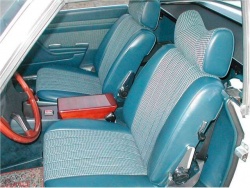


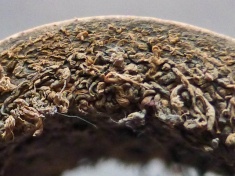
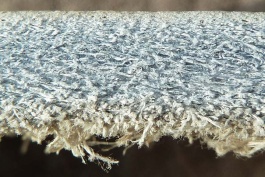




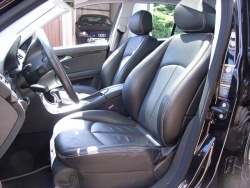



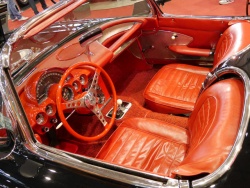



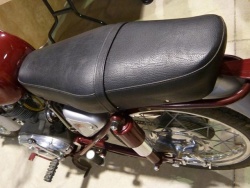


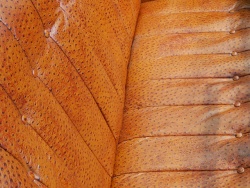
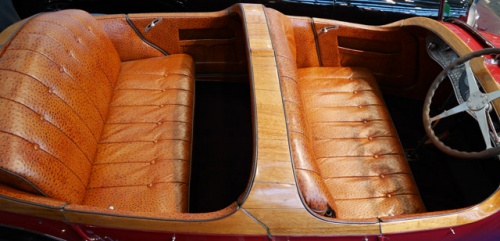








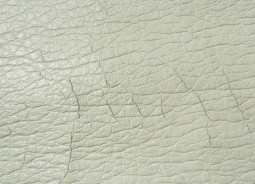
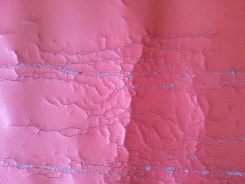










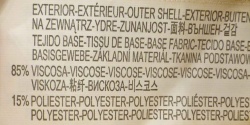



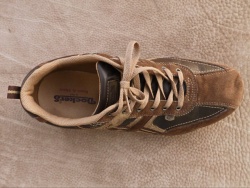
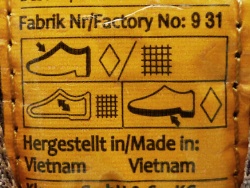

 a kotori web solution
a kotori web solution